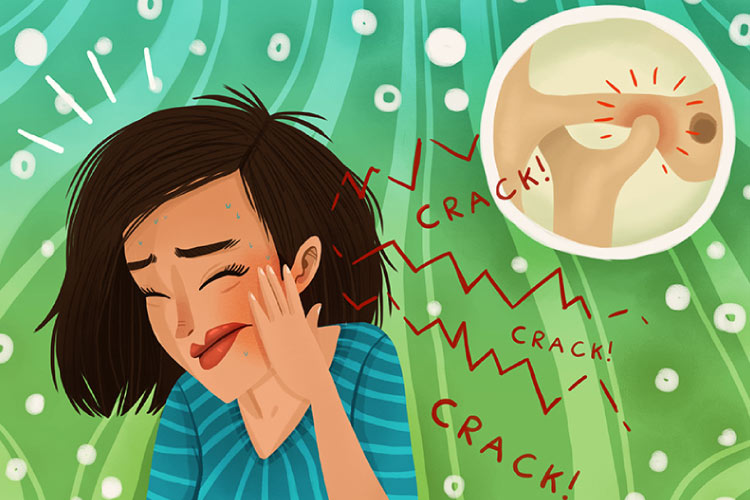
Your jaws help you talk, chew, and smile with ease, so temporomandibular joint dysfunction, can be debilitating for those who suffer from it. The condition is referred to as TMJ or TMD. We’ll cover what TMJ/TMD disorder is, what its symptoms look like, and how you can seek help for it.
What is TMJ?
TMJ occurs when the temporomandibular joint, the hinge which connects your jawbone to your skull, becomes inflamed. It affects not only the joint, but all of the muscles surrounding the joint. The causes of TMJ are quite varied. Genetics, misaligned teeth, previous injury, or arthritis are common sources. Stress and tension often lead to night-time teeth grinding and clenching. This pressure on the jaw can lead to the development of TMJ or aggravate an existing condition. Using cheap mail-order or improperly fitted clear aligners can also cause jaw problems.
Symptoms of TMJ
Severe jaw pain is the most common symptom of TMJ, along with aching ears, toothache, or facial pain. Difficulty getting your jaw to function properly while chewing, yawning and talking are also signs. Some sufferers experience lockjaw and muscle spasms. Other common symptoms of TMJ include a clicking or grating sound when talking or chewing. If you have TMJ you may suffer from ringing in your ears, sinus issues, or dizziness.
Treating TMJ
If you think you have TMJ/TMD, contact us at Leesburg Family Dental right away. Our dentists can help you assess the issue and figure out a solution. In the meantime, you can take over-the-counter pain medication for immediate relief. Use a cold or hot pack on your jaw to ease the pain and eat soft foods to avoid putting additional pressure on your jaw. Do not chew gum. Try some relaxation and stress management techniques to relax your facial muscles. We can help you figure out the right solution for your TMJ symptoms, whether that be orthodontics or getting fitted for a custom night guard. You’ll be smiling comfortably again in no time!
Contact Us